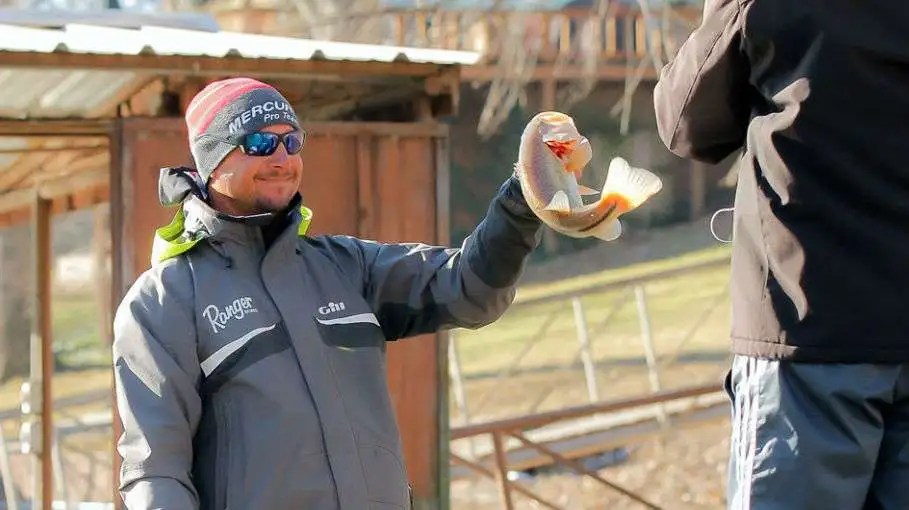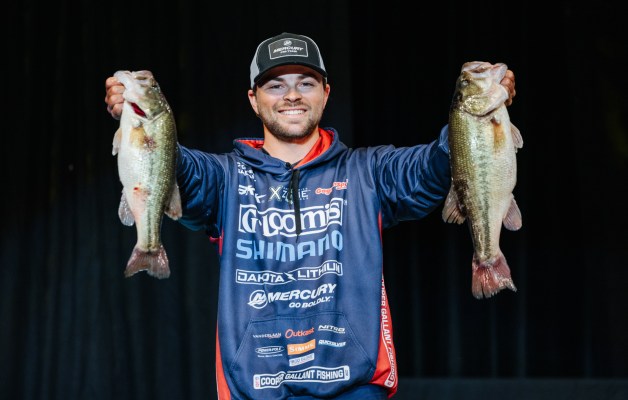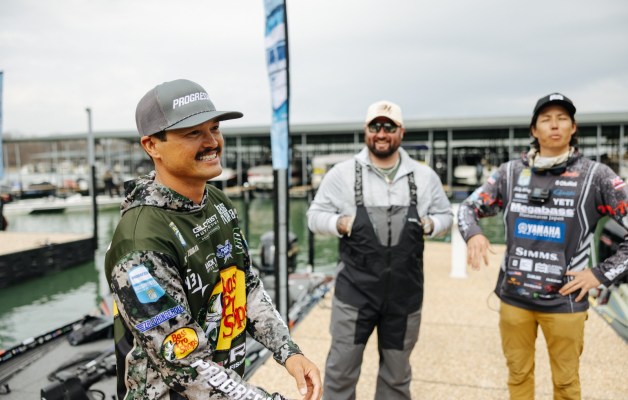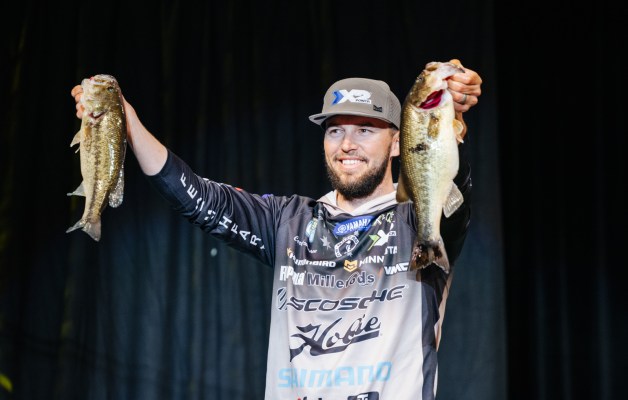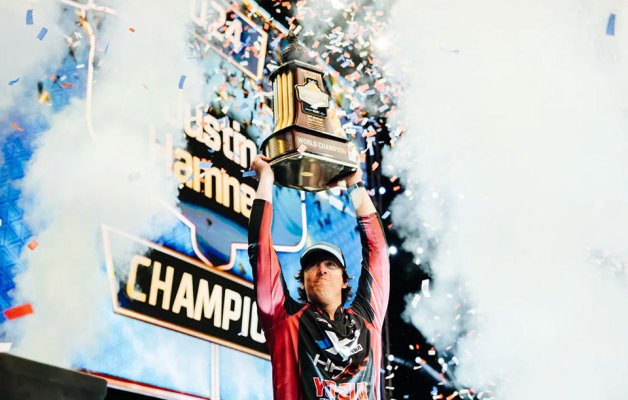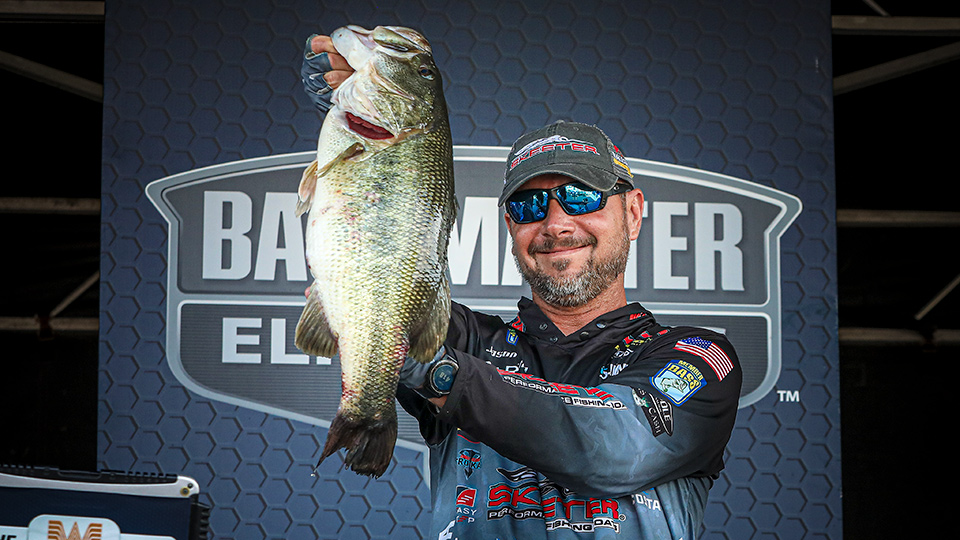
Eight years ago, at the last Bassmaster Classic held at Oklahoma’s Grand Lake O’ the Cherokees, native son Jason Christie watched his two-day lead fall by the wayside as fellow Oklahoman Edwin Evers vaulted from seemingly out of nowhere to claim the win. It was a bitter pill to swallow for Christie, who’d likewise been a favorite there in 2013 before eventually finishing seventh in 2016.
Much has changed since the dejected Christie watched Evers hoist the trophy — in Christie’s life, in the sport and in the nature of the Classic itself — and while some of that removes pressure from the even-keeled veteran, he’s well aware this might be his last chance at a home-field championship, and perhaps his best chance “to step into the next level.”
Since 2016, Christie watched two other pros, Jordan Lee and Hank Cherry, double up on Classic victories. In 2022 at Lake Hartwell, Christie earned one of his own. Now he can join that elite club of multiple-time winners.
“The best way I can describe it is there will always be lots of pressure,” he said. “People say, ‘The dude lives here.’ But it’s definitely not the same kind of pressure that I had back in 2016.”
For those of us who’ve lived through the bass wars, 2016 doesn’t seem like that long ago, but that apparent proximity is a mirage. It’s the comparison of dog years to human years, a lifetime ago. Of course, every tournament — and Classics in particular — operates as its own ecosystem, but here are factors to consider that will weigh on whether Christie prevails.
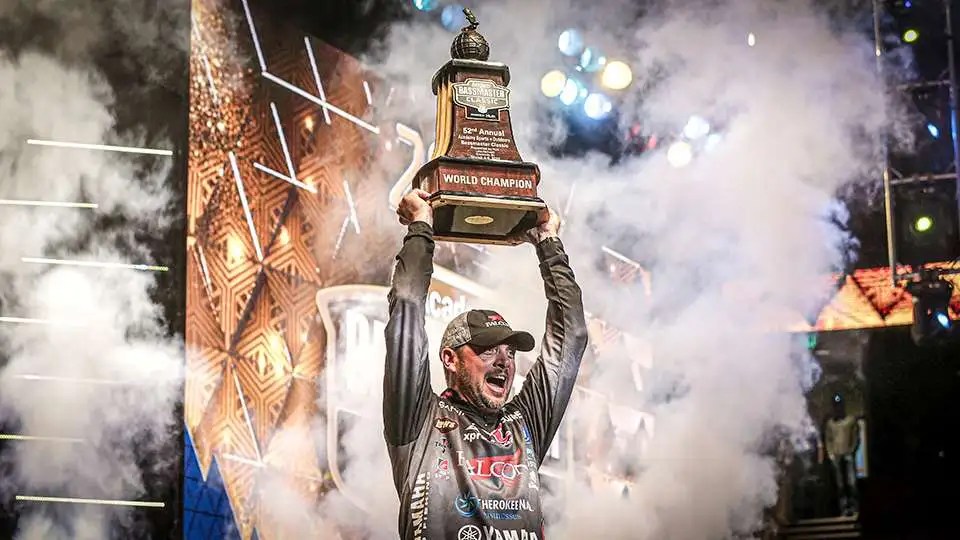
The field: While anglers can remain near or at the top of their game for multiple decades, the Bassmaster Elite Series field, and those at the top of it, has changed substantially over the last decade. The two prior Grand Lake winners – Cliff Pace and Edwin Evers – no longer fish the Elite Series and will not compete there in 2024. To gauge just how complete the turnover has been, it’s important to note that in addition to Christie, the only anglers to qualify for all three Grand Lake Classics are Brandon Palaniuk, Greg Hackney and Brandon Card. Two-time winner Hank Cherry, who made a run at the title in 2013, is back this time, as is Jacob Powroznik, who competed here in 2016.
Beyond that, there are lots of anglers who are new to Grand or comparatively new to Classics altogether. Luke Plamer is the only other Oklahoman, although there are a handful of other Ozarks region competitors. That doesn’t mean that the newcomers will come in “just happy to be there” though. If the young competitors have shown anything, it’s that no field and no venue confounds or intimidates them.
Time of year: The 2013 Classic took place in late February. It was brutally cold on Day 1, with fire trucks covering the boat ramp with sand to prevent mishaps. The 2016 Classic was a bit later, concluding on March 6. This one will be more than two weeks later than that, commencing on March 22. Of course, the date means nothing in a vacuum. It all depends on how the intervening weeks progress.
“In 2013 and 2016 I knew how it was going to go down,” Christie said.
He relied heavily on a jerkbait in the former and a 1-ounce spinnerbait with a No. 6 Colorado blade in the latter.
“Right now, I have no idea what to expect. Sometimes when you’re fishing dirt shallow, you’re only fishing for 2% of the fish that live in the lake, but when they come to the bank you wonder how can there be this many bass in one lake. They literally spawn side by side by side.
“Right now, the water is warmer than it’s ever been at this time of year,” he said in early January. “But we have one big blast coming, and we don’t know what will happen after that. One big blast won’t hurt it, but with those steep hills, once the core of the lake gets cold, it takes a lot to warm it up. I’ve seen fish start spawning here the first week of March, but also as late as the last week of April.”
Water clarity: Water clarity will affect not only the temperature of different sections of the lake, but also what techniques will be in play. Anglers banking on a particular section of the fishery or a limited range of patterns can get blindsided by a sudden influx of colored water.
Indeed, the last time around that was the key to the come-from-behind victory.
“In 2016, it was muddy from one end to the other, except where Edwin fished the last day,” Christie said.
Most notably, water clarity, or lack thereof, may affect anglers who go all-in on offshore patterns, which brings us to the next factor.
Forward-facing sonar: At the time of the last Grand Lake Classic, Garmin had introduced their Panoptix technology, and Christie used it, but he wasn’t specifically targeting fish he’d spotted electronically. Forward-facing sonar wasn’t in widespread use among the rest of the field. Now, it plays some role in every tournament, and some qualifiers are not shy about saying that it is substantially responsible for most of their catches.
“I don’t know how it will play,” Christie said. “But I’m 100% sure that it will play.” Notably, when Christie claimed the title in 2022 at Hartwell, it was not with a jerkbait, a big spinnerbait or some other power fishing tool, but rather with a spinning rod and the help of his offshore eyes.
The rise of forward-facing sonar could mean anglers find groups or populations of bass that were previously untapped. In turn, that could provide those competitors engaged in old-school power fishing with more to fish. Grand is a large fishery, but based on previous Classics it doesn’t always fish like one.
The lake: Christie said that except for scouting missions just before the Classic cutoff he hasn’t fished on Grand Lake since the 2016 Classic.
“It comes back to you, and despite decades of experience and thousands of hours on these waters, that doesn’t mean it’s the same lake as always.
“Each time I go back it seems like I roll up to a spot that I caught them on and there’s a six-slip boat dock sitting on top of it,” he said. “There are a lot more houses and boat docks. That covers up an area and changes how the fish set up.”
The fish are also much more educated, as they are nearly everywhere.
“So many people are better at fishing. That’s why we tend to lean more on finesse,” Christie explained.
Spectator boats: One of the critical factors in past Grand Lake Classics was the incredible enthusiasm of the local fans, as evidenced by the massive spectator galleries that assembled. I remember being caught in between the passing flotillas following Cliff Pace and Mike Iaconelli in 2013 and feeling like I was in a washing machine.
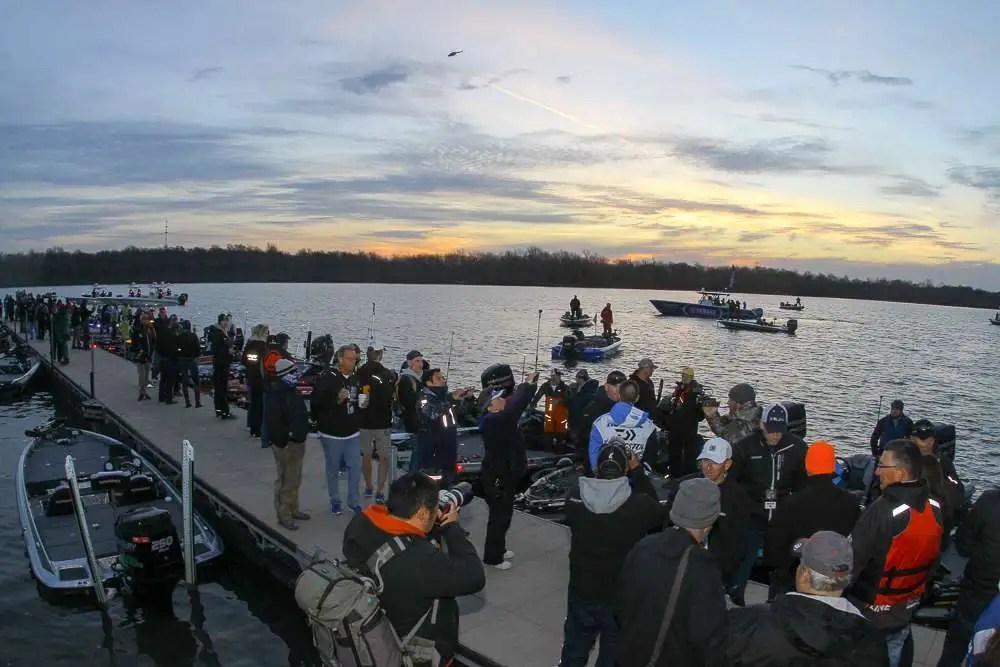
Christie had his own extensive fan base following him both times. They did their best to self-police, and it didn’t seem that anyone intentionally got in his way, but inevitably their desire to get a good view meant that they got a little bit too close. Once he went up one side of a pocket, he often didn’t get to fish the other side – and he certainly didn’t get to fish those places twice.
Now, however, with the rise of Bassmaster LIVE there’s less reason for spectators to be on the water – they can get a better view from the warmth of their living rooms or on their cellphones. That doesn’t mean they’ll stay away entirely, and the Oklahoma fans are particularly enthusiastic, but in recent years the galleries don’t seem to have been as prolific. We’ll see if that remains the case.
The other aspect of technology that changes the game is the rise of YouTube and the ability of competitors to study the old Bassmaster LIVE broadcasts and other materials. The learning curve is exponentially quicker today than at any time in our history, and that changes the dynamic on the playing field.
“You do not want to fish the same thing twice,” Christie said. “You cannot find too much stuff.”
Christie himself: Christie just turned 50, and he seems to remain a model of physical fitness, befitting his past status as a collegiate basketball player. But he’s matured substantially as an angler too. The win at Hartwell is proof of that — he saw the opportunity to get better at an emerging technology and he latched on to it before just about anyone else.
Does having one Classic trophy in his house make him any less driven to win another? Doubtful. He knows that winning a second will lift him into another echelon of superstar, and also that he might not get another chance to hoist the trophy so close to home. Nevertheless, for someone who was already so even-tempered and seemingly unflappable, it does provide additional stability and confidence. He’s always been a closer, but now he knows definitively that he can win one of these.
On paper, the 2016 Classic looked like a blowout — Evers beat Christie by 10 pounds through a late surge — but it was arguably neck and neck until the final hours. Certainly, Christie could have been crushed by that missed opportunity. If anything, it seems to have made him stronger. He’s won three tournaments in addition to the Classic since then, and moreover seems to welcome the spotlight that comes with having the big dance on his home pond. He feels that he’s better than ever at managing his fish and managing the days.
“Since the last Grand Lake Classic, I’m not sweating the little things as much,” he said. “I’m looking at the big picture. One day of fishing is not going to make or break my career. Do you want 100 boats following you around the last day? Absolutely. It means you have an opportunity to win. I want them around and in my way.”
